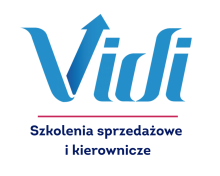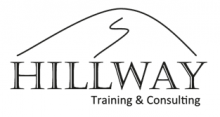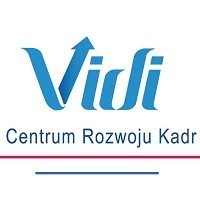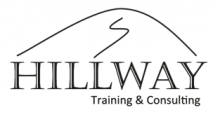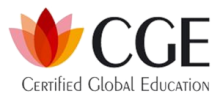Program: Intercultural Communication Training
Duration: 2 days
Objective: To develop skills in intercultural communication, including understanding cultural differences, overcoming communication barriers, and enhancing collaboration in a multicultural environment.
Day 1: Fundamentals of Intercultural Communication
09:00 – 09:30 | Introduction and Opening
- Welcome participants and outline the objectives and agenda of the training.
- The importance of intercultural communication in today’s globalized workplace.
09:30 – 11:00 | Understanding Culture and Its Impact on Communication
- Defining culture and its components: values, norms, beliefs, and behaviors.
- How culture influences communication styles, decision-making, and conflict resolution.
- Exercise: Self-reflection on personal cultural background and its impact on communication.
11:00 – 11:15 | Coffee Break
11:15 – 13:00 | Key Dimensions of Cultural Differences
- Exploring cultural dimensions (Hofstede, Trompenaars, Hall): individualism vs. collectivism, power distance, uncertainty avoidance, time orientation.
- Understanding how these dimensions affect communication and behavior in different cultures.
- Exercise: Case studies on cultural differences and their impact on workplace communication.
13:00 – 14:00 | Lunch
14:00 – 15:30 | Overcoming Barriers in Intercultural Communication
- Common barriers in intercultural communication: stereotypes, prejudices, language differences, misinterpretations.
- Strategies to recognize and overcome these barriers in professional settings.
- Exercise: Role-playing scenarios to practice overcoming communication barriers.
15:30 – 15:45 | Coffee Break
15:45 – 17:00 | Essential Skills for Intercultural Communication
- Key skills for effective intercultural communication: active listening, openness, flexibility, empathy.
- How to develop and strengthen these skills in everyday interactions.
- Exercise: Workshops on active listening and empathy in intercultural contexts.
Day 2: Advanced Intercultural Communication Techniques
09:00 – 09:15 | Recap and Reflection on Day One
- Review key learnings from Day One.
- Introduction to advanced techniques in intercultural communication.
09:15 – 10:45 | Communication in Multicultural Teams
- Challenges and best practices for communication in multicultural teams.
- Building trust and collaboration in diverse teams.
- Exercise: Simulation of working in a multicultural team — project planning and execution.
10:45 – 11:00 | Coffee Break
11:00 – 12:30 | Intercultural Negotiation and Conflict Resolution
- Different negotiation styles across cultures: direct vs. indirect, formal vs. informal, relationship-oriented vs. task-oriented.
- Strategies for successful intercultural negotiations and conflict resolution.
- Exercise: Simulation of intercultural negotiations — role-playing and group discussion.
12:30 – 13:30 | Lunch
13:30 – 15:00 | Non-Verbal Communication Across Cultures
- The role of non-verbal communication: gestures, facial expressions, personal space, eye contact.
- How to interpret and adjust non-verbal cues in different cultural contexts.
- Exercise: Case studies on non-verbal communication in various cultures.
15:00 – 15:15 | Coffee Break
15:15 – 16:30 | Developing Intercultural Competence
- Strategies for developing intercultural competence: learning, experience, reflection.
- Tools and resources to support ongoing development of intercultural skills in the workplace.
- Exercise: Creating a personal development plan for intercultural competence.
16:30 – 17:00 | Closing and Summary
- Summary of key aspects of intercultural communication.
- Q&A session and discussion of next steps for personal and professional development.
- Presentation of certificates of completion.
Participants will learn:
- Understand Cultural Differences and Their Impact on Communication: Gain insights into the key cultural dimensions and how they influence communication styles, behaviors, and interactions in the workplace.
- Identify and Overcome Communication Barriers: Learn to recognize common barriers in intercultural communication, such as stereotypes and language differences, and develop strategies to overcome them effectively.
- Develop Key Intercultural Communication Skills: Master essential skills such as active listening, empathy, openness, and flexibility, which are critical for successful interactions in a multicultural environment.
- Communicate Effectively in Multicultural Teams: Understand the challenges of communication in diverse teams and learn techniques to build trust, foster collaboration, and enhance team performance.
- Negotiate and Resolve Conflicts Across Cultures: Learn about different negotiation styles and conflict resolution approaches in various cultures, and develop strategies to manage these processes effectively.
- Interpret and Adapt Non-Verbal Communication: Gain knowledge on how non-verbal communication differs across cultures and how to adjust your behavior to avoid misunderstandings.
- Develop Intercultural Competence: Understand the importance of continuous learning and reflection in developing intercultural competence, and create a personal plan to enhance these skills in professional settings.
- Build Strong Interpersonal Relationships in a Multicultural Context: Learn how to build and maintain positive relationships with colleagues, clients, and partners from different cultural backgrounds, enhancing both personal and organizational success.
Participants will understand how to:
- Identify and navigate cultural differences, recognizing how these differences affect communication and behavior in the workplace.
- Overcome common barriers in intercultural communication, such as language challenges and cultural misinterpretations.
- Apply key skills like active listening and empathy, which are essential for effective communication in a diverse environment.
- Work effectively in multicultural teams, enhancing collaboration and achieving common goals despite cultural differences.
- Negotiate and resolve conflicts, adapting strategies to fit the cultural context and achieve win-win outcomes.
- Interpret non-verbal cues across different cultures, adjusting their own non-verbal communication to better align with cultural norms.
- Develop and continuously improve intercultural competence, using a range of tools and techniques to enhance their ability to work across cultures.
- Build and sustain strong, respectful relationships with individuals from diverse cultural backgrounds, contributing to a positive and inclusive workplace environment.
This training will equip participants with the knowledge and skills necessary to communicate effectively across cultures, fostering a more inclusive, productive, and harmonious work environment in today's globalized business landscape.






























